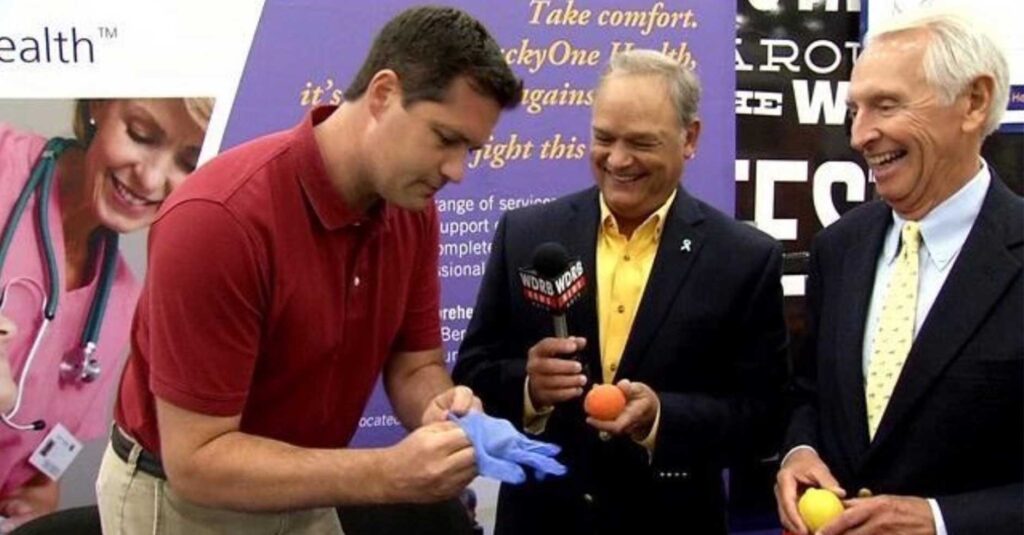Early testing leads to early detection
In 1993, the news of Frank Zappa’s death at 52 due to advanced prostate cancer shocked many, including myself. As a medical professional, I had been taught that prostate cancer was primarily an ailment affecting older men, leading me to initially dismiss the diagnosis as an anomaly. However, my perception of this disease shifted drastically when at the age of 49, I myself was diagnosed with Gleason 7/10 prostate cancer. This diagnosis necessitated a radical medical prostatectomy in 2003. This personal encounter with the disease shattered my preconceived notions and spurred me into action, making me question the existing screening guidelines and advocate for an earlier protocol.
At the time of my diagnosis, I was serving as the lieutenant governor of Kentucky. Feeling a sense of responsibility to raise awareness about prostate cancer, I compared the screening protocols recommended by the American Cancer Society, National Comprehensive Cancer Network (NCCN) and the United States Preventative Services Task Force (USPSTF). While these organizations suggested screening starting at age 50 to 55, I discovered that many urologists were advocating for baseline PSA screenings as early as age 45 and even 40 for individuals at highest risk. This discrepancy and confusion in recommendations prompted me to establish the Kentucky Prostate Cancer Coalition (KPCC) and initiate free prostate exams and screenings at the Kentucky State Fair, aiming to reach a diverse and sizable audience.
Despite our best efforts and the remarkable growth of KPCC into the largest prostate screening program in the United States by 2010, we encountered challenges with the introduction of the Affordable Care Act and the subsequent D grade rating for PSA screening by the United States Prevention Services Task Force (USPSTF). This rating allowed health plans to deny coverage for prostate cancer preventive services, significantly impeding our advocacy efforts.
However, amidst these challenges, I found an ally in Governor Steve Beshear, who had also been diagnosed with prostate cancer in his late 40s. His experience highlighted the critical role of a PSA blood test in combination with a normal physical exam. His case emphasized the need for proactive screening measures. Despite the hurdles posed by healthcare policies and guidelines, high profile cases like those of Dan Fogelberg, Rudy Giuliani, and billionaire David Koch underscored the urgency of early detection and the potential impact of timely interventions.
In March 2022, a study published in JAMA further substantiated the link between USPSTF recommendations and advanced prostate cancer diagnoses, citing a marked increase in cases following the restrictions of PSA-based screenings. This study reinforced the necessity of reevaluating existing guidelines and policies to ensure optimal outcomes for patients.
Additionally, initiatives by Louisville-based First Urology, reporting a significant rise in advanced prostate cancer diagnoses, contributed to a broader public discourse on the importance of screenings. Notable figures such as Rudy Giuliani and Ben Stiller shared their experiences, advocating for prostate cancer screenings and highlighting the

life-saving potential of early detection. In Giuliani’s ad campaign he stated, “A five-minute test saved my life…it can save yours.”
Ben Stiller’s public revelation about his prostate cancer diagnosis at age 48 resonated widely, emphasizing the critical role of annual baseline PSA blood tests and physical exams such as a digital rectal examination (DRE). Following his surgery, Ben Stiller told Howard Stern in 2014, “…taking the PSA blood test literally saved my life. Had I waited until age 50 as the American Cancer Society recommended, the tumor would have grown for another two years before I would have received treatment.” His journey, along with the experiences of other advocates, played a pivotal role in shaping revised recommendations by the American Cancer Society, advocating for screenings at age 40 for high-risk individuals and age 45 for African American men with a positive family history.
Despite ongoing opposition from USPSTF, the collective efforts of advocacy groups, healthcare professionals, and public awareness campaigns have made significant strides in combating advanced prostate cancer. Our organization, KPCC, in collaboration with partners such as the Lexington Cancer Foundation and the Kentucky Cancer Program, have played a crucial role in providing free screenings, education, and counseling to the public, ultimately saving lives and empowering individuals to request a PSA blood test and take proactive steps towards
Former Lt. Governor Steve Henry and fellow prostate cancer survivor Governor Steve Beshear during an interview at the Kentucky State Fair advocating for men to get screened for prostate cancer.
combatting a leading cause of cancer deaths in men.
As a prostate cancer survivor and advocate, I am deeply grateful for the progress made in raising awareness, challenging outdated guidelines, and ensuring that every man has full knowledge and access to timely screenings and comprehensive care. The journey of prostate cancer advocacy continues, driven by a shared commitment to improving outcomes and reducing the impact of this disease on individuals and families.



